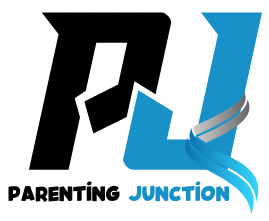Breastfeeding is one of the most natural and beneficial ways to feed your baby, providing essential nutrients and fostering a strong bond between mother and child. The practice of breastfeeding has been a cornerstone of infant nutrition for centuries, and scientific research has consistently shown its numerous health benefits for both mothers and babies. Whether you’re a new parent or a caregiver considering your feeding options, understanding the importance of breastfeeding can help you make an informed decision about how best to care for your baby.
- The Nutritional Benefits of Breast Milk
Breast milk is the ideal source of nutrition for infants, offering a perfect balance of proteins, fats, vitamins, and carbohydrates essential for a baby’s growth and development. Unlike formula milk, breast milk contains natural antibodies and enzymes that protect the baby from infections and illnesses during the first months of life.
- Immunity Boosting: One of the most significant advantages of breastfeeding is the immune support it provides. Breast milk is rich in immunoglobulins, particularly immunoglobulin A (IgA), which helps protect babies from harmful pathogens. These antibodies help reduce the risk of ear infections, respiratory illnesses, and gastrointestinal problems.
- Tailored to Baby’s Needs: Breast milk is not a static substance; it changes over time to meet your baby’s evolving nutritional needs. As your baby grows, the composition of breast milk adjusts to provide the right balance of nutrients, ensuring that your baby receives optimal nourishment.

Source: https://images.theconversation.com/files/227002/original/file-20180710-70051-vodnnl.jpg?ixlib=rb-4.1.0&q=20&auto=format&w=320&fit=clip&dpr=2&usm=12&cs=strip
- Breastfeeding and Bonding
Breastfeeding isn’t just about feeding—it’s also a unique opportunity for bonding between mother and child. The physical closeness, skin-to-skin contact, and eye contact during breastfeeding help foster a deep emotional connection.
- Emotional Development: The act of breastfeeding promotes emotional and psychological development in babies. The bond formed through breastfeeding can help your baby feel secure and loved, which is crucial for their emotional well-being.
- Hormonal Benefits for Mothers: For mothers, breastfeeding stimulates the release of oxytocin, often referred to as the “love hormone.” This hormone not only helps with milk production but also promotes relaxation and feelings of love, further strengthening the mother-child connection.
- Health Benefits for the Mother
Breastfeeding doesn’t only benefit the baby; it also offers health benefits for the mother.
- Reduced Risk of Certain Cancers: Research shows that breastfeeding can lower a mother’s risk of developing breast and ovarian cancers. It is believed that breastfeeding may delay the return of menstruation, which can reduce a woman’s lifetime exposure to estrogen—a hormone linked to these types of cancers.
- Postpartum Recovery: Breastfeeding can also help the mother recover physically after childbirth. The release of oxytocin during breastfeeding helps the uterus contract, which can speed up the process of returning to its pre-pregnancy size. Additionally, breastfeeding may help mothers lose pregnancy weight by burning extra calories.
- Natural Contraception: Exclusive breastfeeding, especially in the early months, can delay the return of menstruation and act as a natural form of contraception. However, this is not a reliable method of birth control, and it’s still important to discuss options with a healthcare provider.

Source: https://www.uhhospitals.org/-/media/images/blog/2020/08/covid-19-and-breastfeeding-blog-mainarticleimage.jpg?h=450&w=720&la=en&hash=158231AC1E36293A06469FCC849F4447
- Breastfeeding and Cognitive Development
Studies suggest that breastfeeding has a positive impact on a baby’s brain development. The nutrients found in breast milk, including omega-3 fatty acids and long-chain polyunsaturated fatty acids (DHA and ARA), are crucial for the development of the baby’s brain and nervous system.
- Higher IQs and Better Cognitive Skills: Babies who are breastfed may perform better in terms of cognitive abilities, including higher IQ scores. These benefits can last well into adulthood, as studies show that breastfed children tend to perform better academically.
- The Practical Benefits of Breastfeeding
Breastfeeding offers several practical advantages for mothers and families:
- Convenience: Breast milk is always available, at the right temperature, and doesn’t require preparation or sterilization of bottles. This makes feeding on demand easier and more convenient, especially during nighttime feedings.
- Cost-Effective: Breastfeeding is free! There’s no need to purchase formula or special bottles, which can be expensive over time. This can be a significant financial saving for families.
- Environmentally Friendly: Unlike formula feeding, which involves packaging and waste, breastfeeding is an environmentally sustainable practice. It produces no waste and has a minimal carbon footprint.

Source: https://womancarepc.com/wp-content/uploads/2024/08/Embracing-Breastfeeding-Benefits-Tips-and-Everything-You-Need-to-Know.jpg
- Overcoming Common Challenges in Breastfeeding
While breastfeeding offers numerous benefits, it can also present challenges, especially for first-time mothers. Common issues such as latch problems, sore nipples, or concerns about milk supply can cause anxiety.
- Proper Latch: Ensuring that your baby is latched properly is key to successful breastfeeding. A poor latch can lead to discomfort and insufficient milk intake. Consult a lactation consultant or pediatrician to ensure that your baby is latched correctly.
- Milk Supply: Some mothers worry about their milk supply, but most breastfeeding women produce enough milk for their baby. If you have concerns about supply, a lactation consultant can offer guidance on how to boost production.
- Support: One of the most important factors for successful breastfeeding is support from your partner, family, and healthcare professionals. Joining a breastfeeding support group can also help mothers feel more confident and supported in their journey.

Source: https://cdn.shopify.com/s/files/1/0069/4793/0196/files/Capfgfrhfture_480x480.png?v=1614699906
- When Breastfeeding Isn’t Possible
While breastfeeding is highly recommended, there are situations where it may not be feasible. Some mothers may experience medical conditions that prevent breastfeeding, or they may choose not to breastfeed for personal reasons. In these cases, infant formula can provide the necessary nutrition. It’s important to remember that both breastfeeding and formula feeding have their pros and cons, and the best decision is the one that works for you and your baby.
Final words:
Breastfeeding offers numerous health benefits for both mothers and babies, from providing essential nutrients to fostering emotional bonds. It supports the physical, emotional, and cognitive development of your baby, while also promoting postpartum recovery for mothers. While breastfeeding may present challenges, with the right support and guidance, most mothers can overcome these obstacles and provide their babies with the best nutrition possible. Ultimately, the decision to breastfeed is a personal one, and the most important thing is to make a choice that works for you, your baby, and your family’s lifestyle.





